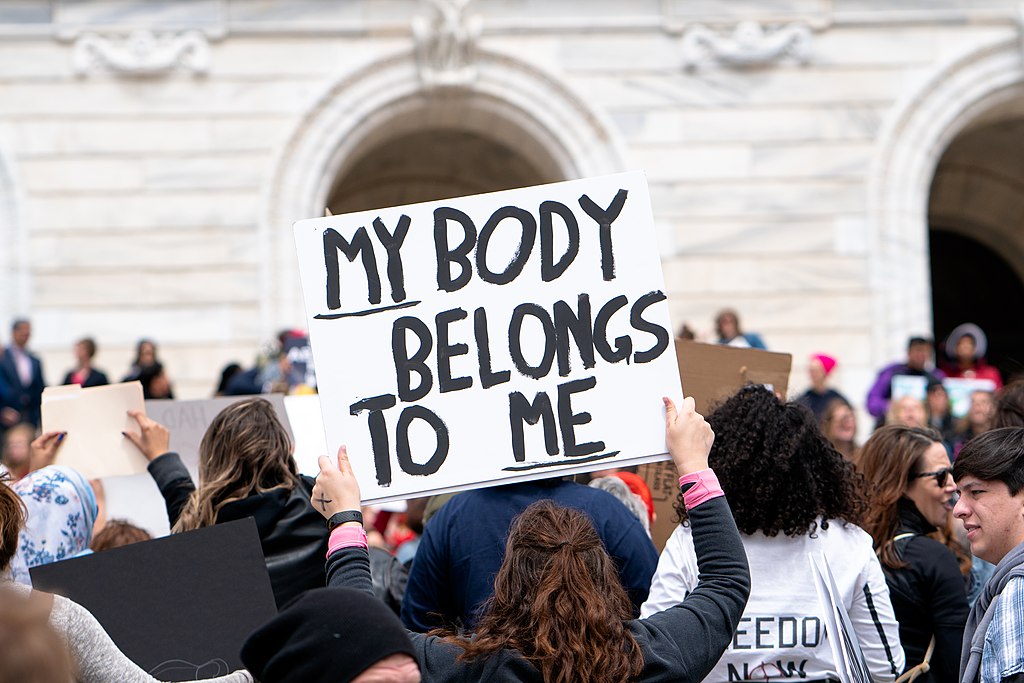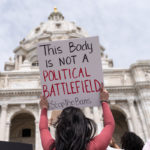
Editor’s Note: This article is part of our project on the importance of storytelling in the fight for abortion access.
“The thing that stories do, really, is humanize an issue.”
So says Tatiana Perkins, manager of patient advocacy programs for national reproductive health nonprofit Planned Parenthood. “We can talk about statistics all we want,” she continues. “But what really changes hearts and minds is listening to somebody talk about their experience.”
Abortion bans continue to disrupt the lives of pregnant people throughout the U.S., in the wake of the Supreme Court’s decision to overturn Roe v. Wade last June. Subsequent attacks on reproductive freedoms are hurting Americans by the tens of millions – a disproportionate number of them, people of color.
Planned Parenthood has, since 1916, been on the front lines of protecting and preserving abortion access throughout the U.S. As part of that broader mission, the organization offers an Our Abortions, Our Stories program, which gives interested parties a way to tell their abortion stories publicly. While the initiative began five years ago, and has received about 10,000 stories to date, more than 6,000 have been submitted within the past tumultuous year.
In addition to the storytelling platform, Planned Parenthood also offers resources to guide people through talking about their abortions with friends and families. The storytellers “are the ones that should be driving the narrative, because they have firsthand accounts and experiences about it,” Perkins says. “They’re all going to have different journeys, different ways of processing – and they’re all extremely valid and important to talk about.”
And, Perkins says, the experience of hearing these widely varied individual experiences with abortion could spark true change in others – particularly, those who are anti-abortion.
“All kinds of people from all walks of life will have an abortion – regardless of their race, their ethnicity, their socio-economic status. People of all creeds and religions will have abortions,” she notes. “People who might be on the fence [with supporting abortion] are able to empathize with them – are able to think about how, if they were in their position, things might be different.”
Perkins adds, “They might change their minds.”
Research has shown this to be true. A 2022 study conducted at Dartmouth College, for example, found that direct conversation has the potential to synchronize participants’ thinking. “Conversation is our greatest tool to align minds,” Thalia Wheatley, a social neuroscientist at Dartmouth, told The New York Times. “We don’t think in a vacuum, but with other people.”
Minneapolis-based social justice coaching firm Living Proof Advocacy commissioned a study in 2019 that also pointed to the power of personal narrative as a tool in activists’ arsenals. “Stories – and particularly those about individuals – elicit greater empathy than facts and statistics, can motivate those who hear them to take positive action, and lower audience members’ resistance to new ideas,” the study reads.
In Texas, of all places, there is now tangible evidence to support this assertion. There, a state district judge recently granted a temporary injunction protecting women who get abortions due to medical necessity, and the doctors who make “good-faith judgments” to terminate those pregnancies. The ruling came after “two days of emotional testimony in an Austin courtroom [where] women gave wrenching accounts of learning their babies would not survive birth,” according to the Associated Press.
News of the injunction was welcome to lead plaintiff Amanda Zurawski, who told the AP that this sort of result is “why we put ourselves through the pain and the trauma, over and over again, to share our experiences and the harms caused by these awful laws.”
Though the injunction was subsequently blocked by the state’s Supreme Court, proof of the power of storytelling remains, experts say. Sharing in this context “should work to change the broader conversation around [abortion]. It really fights that stigma that we’ve had for forever around” it, Perkins says.
Storytelling, she adds, is “a beautiful, wonderful thing.”



